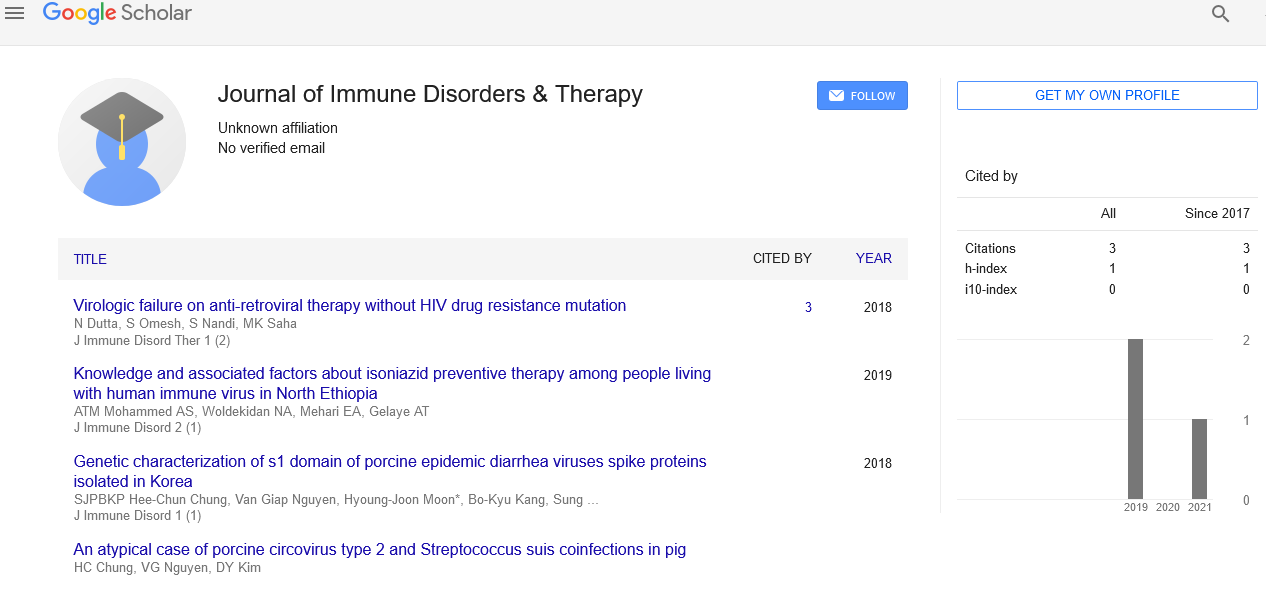
Sign up for email alert when new content gets added: Sign up
Assessment of anticancer drug impact on survival signaling pathways in primary lung cancer cell lines
9th WORLD CONGRESS ON IMMUNOLOGY AND CANCER
December 09-10, 2019 | Barcelona, Spain
Aurimas Stulpinas, Matas Sereika, Natalija Krestnikova, Aušra Imbrasaite and Audrone Valerija Kalvelyte
Vilnius University Life Sciences Center, Lithuania
Posters & Accepted Abstracts: J Immune Disord Ther
Abstract :
Background: Patient-derived cancer cell cultures/lines is a promising approach in predicting clinical response. As demonstrated recently in a large-scale analysis, patient derived primary cancer cell lines harbor the same genetic alterations that are found in patient’s tumor in vivo. Signaling molecules of Mitogen-Activated Protein Kinases (MAPKs) and PI3K/AKT/mTORC pathways, key regulators of cell proliferation as well as differentiation and death, are activated by various and different oncogenic mutations and are common for many cancers. Deregulated signaling pathways are associated with resistance to chemotherapy. Therefore, combination of conventional chemotherapeutic drugs with inhibitors of intracellular signaling molecules is a promising strategy for cancer treatment. In this study MAPK ERK and AKT kinase-targeted drugs and their combinations with conventional chemotherapeutics were tested on lung adenocarcinoma cell line A549 and a panel of lung cancer primary cell lines from different patients.
Methods: ERK and AKT-targeted drugs (ERK inhibitor SCH772984, trametinib and selumetinib (MEK), capivasertib (AKT), idelalisib (PI3K)) and their combinations with conventional lung cancer chemotherapeutics (cisplatin, paclitaxel and docetaxel) were tested on A549 cell line and a panel of different primary cell lines derived from surgical specimens of lung cancer patients (Regional bioethical approval no. 158200-18/5-1024-537). Cell functional parameters such as viability, proliferation, apoptosis, morphology was assayed by microscopy, MTT, resazurin reduction and crystal violet staining methods. Cancer stem cell associated and EMT markers, signal transducing molecules expression and phosphorylation in response to drug treatment were evaluated by Western blotting and immunocytochemistry.
Results: In vitro drug testing in a series of dose-response experiments showed differences in drug sensitivity between cell lines. Constitutively active/phosphorylated ERK1/2 (pERK1/2) and AKT (pAKT) were further stimulated by chemotherapeutics in studied cancer cells, but the level was cell, drug and concentration-dependent. ERK and AKT-targeted drugs resulted in cell proliferation inhibition but had a minor effect on conventional chemotherapeutic drug-induced cell death when applied singly, whereas combined ERK and AKT inhibition led to increase in anti-proliferative and pro-apoptotic responses, though again, depending on the cell type. The efficacy of targeted drugs was confirmed by reduced target activity/phosphorylation in tested cells. Moreover, the results obtained demonstrated the existence of compensatory feedback loops between two signaling pathways in those cells: inhibition of PI3K/AKT pathway resulted in activation of MAP kinase ERK and, vice versa, inhibition of MEK/ ERK pathway augmented pAKT level.Dependency on HER2, oncogenic RAS, amplified c-Met, integrin-β1, MLCK, myosin- IIA, ribosomal protein S6, PUMA, mevalonate pathway has been reported in different cellular systems as being involved in defining this phenomenon. In present study, we showed that the effect might be dependent on the signals induced by extracellular contacts and the strength of chemotherapeutic stimulus.
Significance: Our findings provide more insight into molecular mechanisms of interactions between pro-survival pathways and may suggest additional ways in diminishing cancer cell resistance.
Acknowledgement: This work has received funding from the European Regional Development Fund (Project No. 01.2.2-LMT-K-718-01-0072) under grant agreement with the Research Council of Lithuania (LMTLT).
Biography :
Aurimas Stulpinas is currently a junior researcher in the Vilnius University, Lithuania.
E-mail: aurimas.stulpinas@bchi.vu.lt




